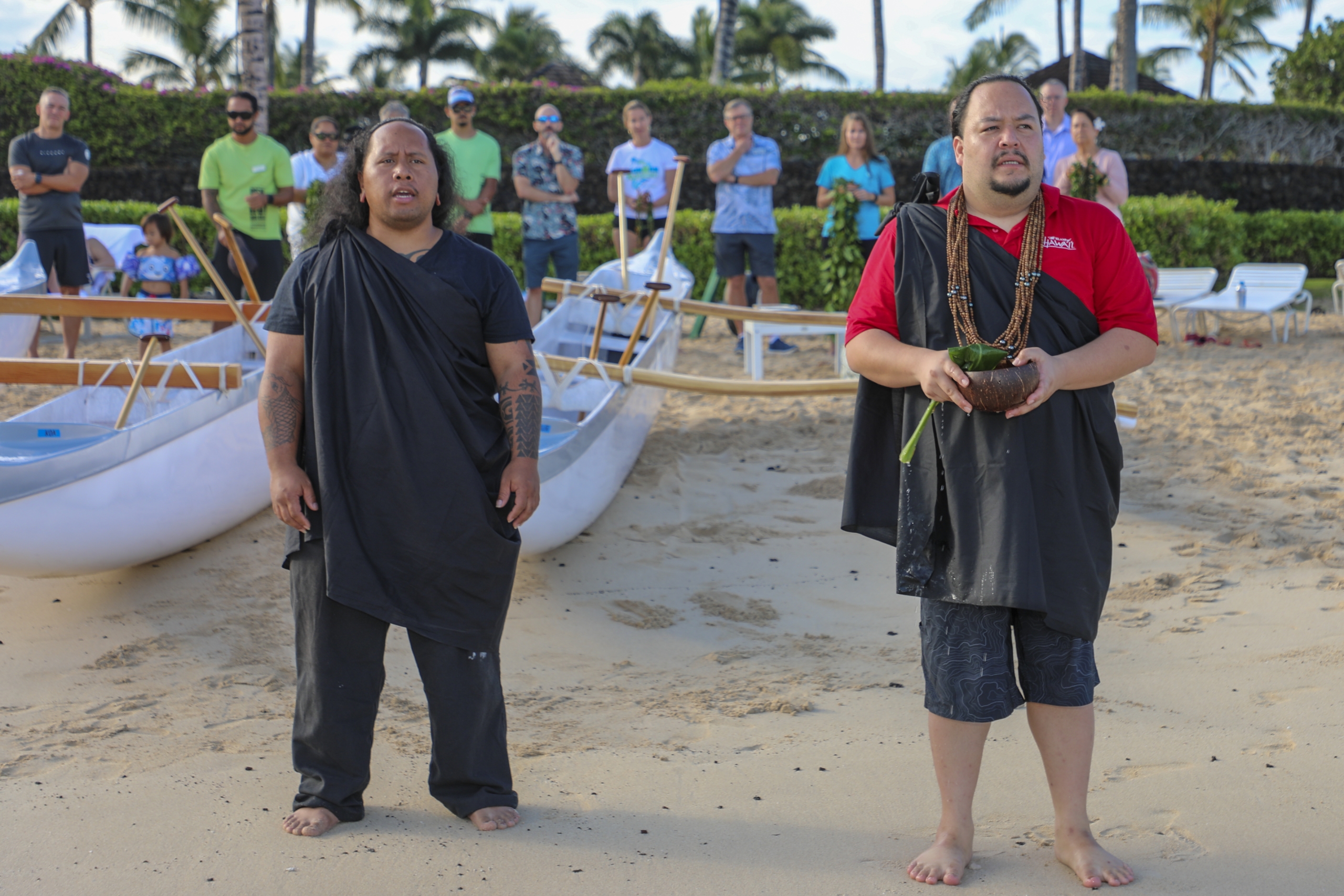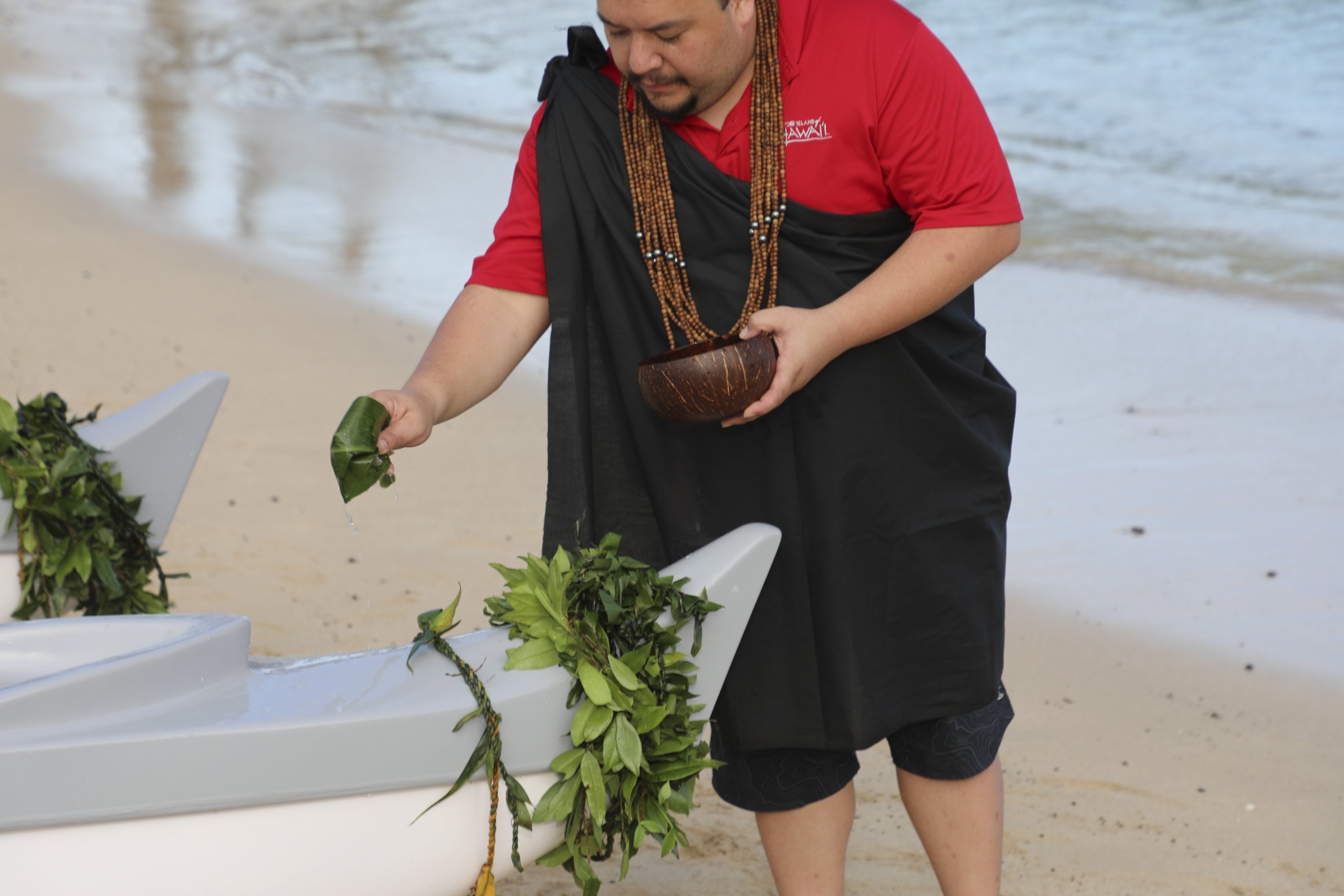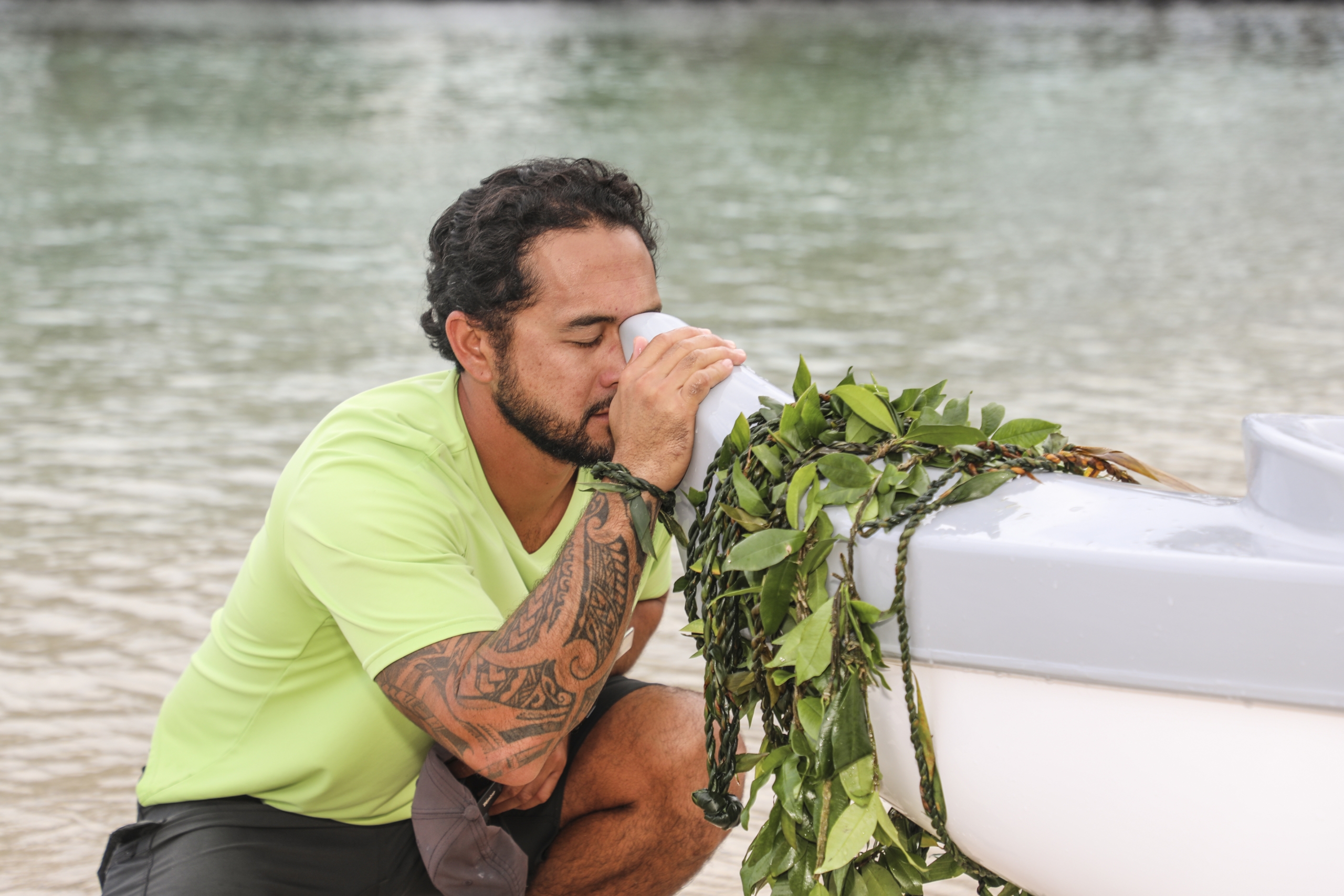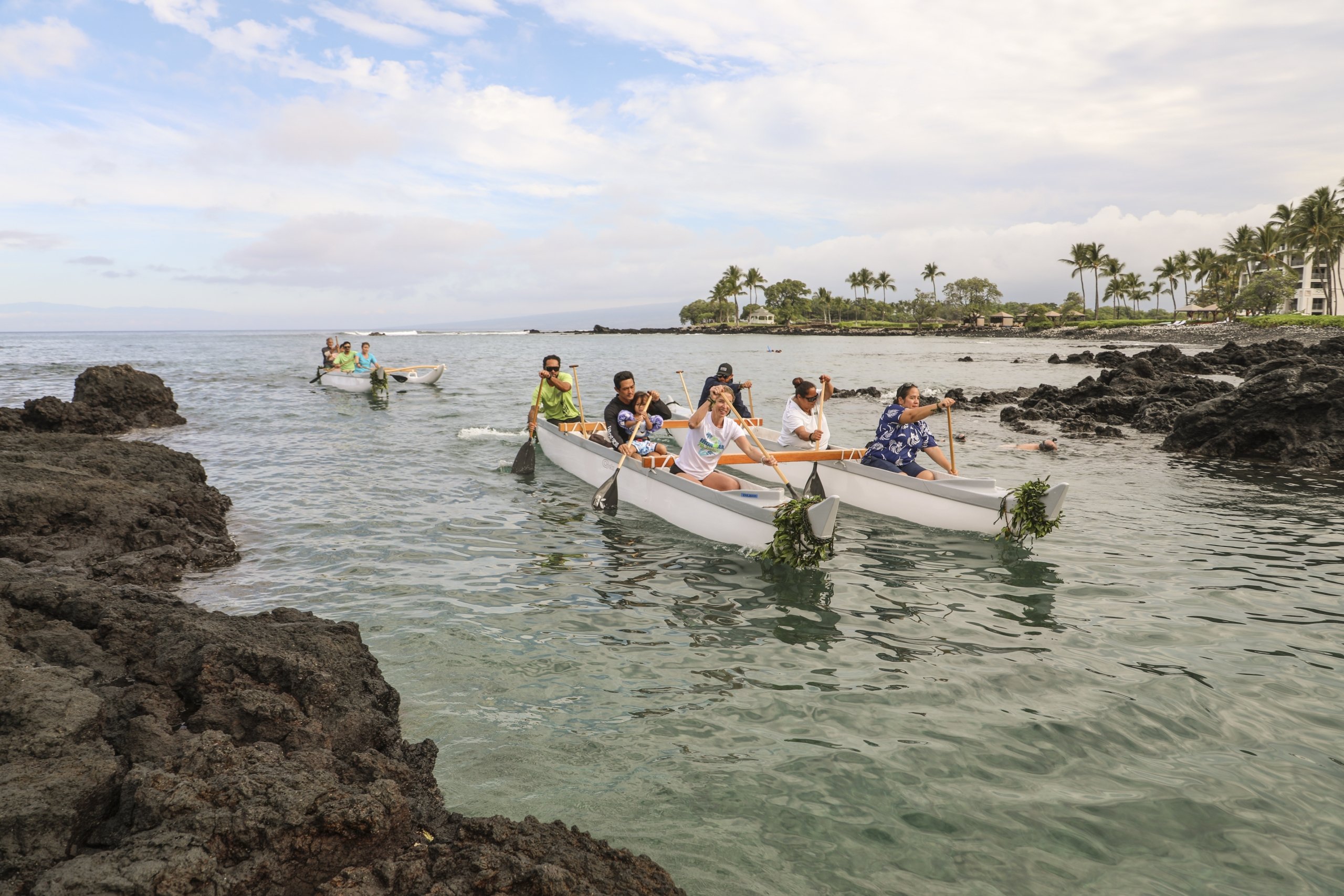
Canoe Blessing
Our Fairmont Orchid ‘ohana (family) gathered at Pauoa Bay for a Hoʻolaʻa Waʻa (canoe blessing), led by Kumu Micah Kamohoaliʻi, for our property’s three new canoes. In Hawaiian culture, we honor and recognize that the waʻa (canoe) has a spirit that will create a relationship with the moana (ocean), ʻāina (land), kanaka (man), ʻuhane (spiritual world), and kupuna (our ancestors). “We recognize all those that made, prepared, or touched the canoe to get it to this point as their spirit stays with the waʻa (canoe) as well,” shares Fairmont Orchid’s Director of Hawaiian Culture, Kaʻiulani Blankenfeld. “The purpose of each wa’a may differ such as fishing, surfing, sailing, pleasure, or racing, and every waʻa (canoe) is blessed to recognize that purpose with intentions that it will perform well and safely each time.”

In the blessing, Kumu Micah Kamohoaliʻi asks “Pehea ke lolo waʻa?” (How are the brains (spirit) of the canoe?) Everyone responded after that safe and smooth paddle out to place our hoʻokupu (ceremonial presentation of gifts) in the ocean, Maikaʻi ka lolo ana (the brains are good). This is to say the brains are in the canoe and are good, that the spirit, feel and character of the canoe are in good condition. The waʻa (canoe) is ready to do her job, ready to welcome people, ready to engage with the ocean and land. The waʻa (canoe) is happy to be doing all she will do.

At the end of the ceremony, Uncle Kalani and our Hui Holokai Beach Ambassadors went to honi (touch his nose) to the manu ihu (nose of each canoe), to share the hā (breath) with each, the same we do as humans with each other. As the hoʻokele (steersman) or kāpena (captain) of the waʻa (canoe), this is his acknowledgement of the deep relationship and care that he will nurture with the waʻa (canoe).

Things We Learn About Our Waʻa (canoe):
- The waʻa (canoe) is to be treated and cared for as a treasured kupuna.
- Only sit in a waʻa (canoe) when it is on the water, never when it is on land.
- When paddling, do not hit the side of the waʻa (canoe), as you would not hit your loved ones.
- Keep the waʻa (canoe) clean and well maintained so that is remains beautiful and sound, to do what it is intended to do safely.
- Rigging the waʻa (canoe) with care and strength is important to ensure it is well balanced and positioned to avoid tipping, sinking or falling apart in rough waters.
- Take time to mahalo (thank) the waʻa (canoe) each time you are near them, acknowledge them as you would your friends and family. This strengthens the relationship and the waʻa (canoe) then welcomes you in each time.



